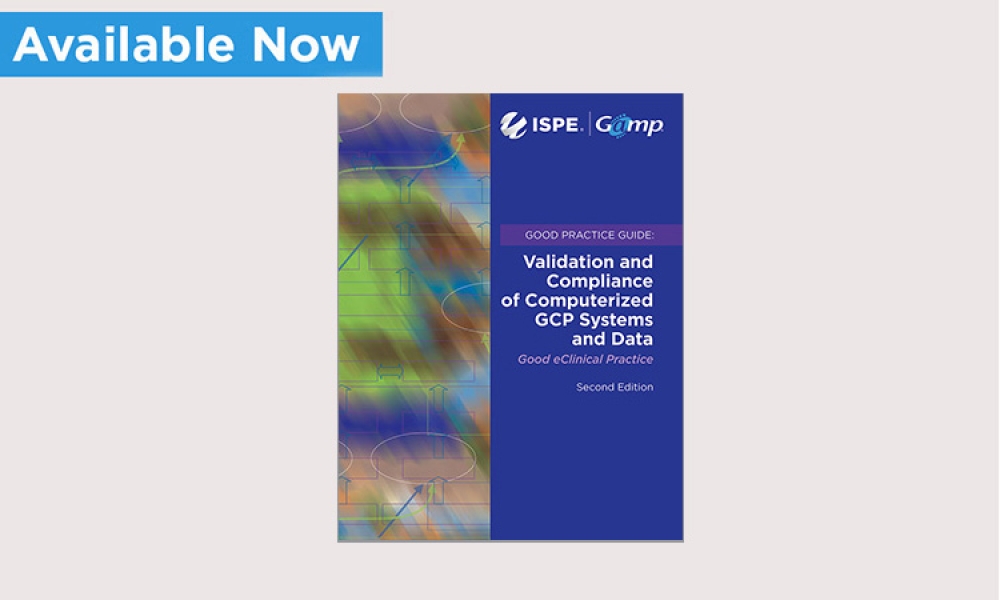The ISPE Japan Affiliate held the “Young Professionals Seminar” to support the growth of recent graduates. Starting on 14 July 2023, this seminar spanned four sessions and took place at the Nihonbashi Life Science Building and Taiyo Pharma Tech Takatsuki Plant. Led by ISPE Emerging Leaders, the seminar aimed to cultivate the next generation of leaders in the pharmaceutical industry.

Downloads
Plastic Process Waste in Biopharmaceutical Manufacturing
Cover: This article presents a comprehensive analysis of plastic waste generation in the biopharmaceutical industry, focusing on using single-use technologies (SUT) in bioprocessing for monoclonal antibody (mAb) production. It aims to inform sustainable practices within the biopharmaceutical industry and to encourage the development of more sustainable disposable technologies.
3R Initiative Within Roche’s Global QC Network
Feature: This article describes the numerous activities in the commercial quality control (QC) network that aim to replace in vivo assays with alternative methods in the course of production and release. Specifically, three areas are considered: cell bank testing, pyrogen testing, and potency testing. For each area, examples are provided for alternative assays or control concepts with which in vivo–based assays in QC could be successfully replaced. The successfully completed and implemented 3R projects described in this article are intended to highlight alternative testing concepts to biopharmaceutical quality managers, so they can evaluate which in vivo assays in their QC network could be replaced by alternative assays.
Decarbonizing Pharmaceutical Manufacturing Facilities
Feature: Reducing the pharmaceutical industry’s carbon footprint has become a management responsibility. This article introduces some of the key points, actual methods, and practical examples of our implementation to reduce carbon emissions from pharmaceutical manufacturing facilities in Southeast Asia.
Net-Zero Manufacturing Facilities: Obstacles and Benefits
Technical: The decision to pursue net-zero facility design in manufacturing is complicated. There are significant challenges related to initial project costs, physical space constraints, and project site considerations—but also substantive benefits from operational savings, environmental impact, building brand trust, and working toward a more sustainable future.
A Cloud Service Provider Exit Strategy
Technical: Traditionally, a regulated company is accountable for all aspects of their infrastructure qualification and application validation. With the introduction of public cloud service providers (CSPs), part of that technical responsibility has shifted to a cloud supplier, making supplier assessment and supplier management more important than ever—even though the regulated company is still accountable for compliance to existing legislations and regulations.
In This Issue
Governments around the world have made international commitments to reduce their environmental impact and protect nature. Policy frameworks have been established to facilitate and drive progress against agreed-upon targets. These directly impact end-to-end activities for the biopharmaceutical, pharmaceutical, and medical device sectors, including research and development, manufacturing,...
This article describes the numerous activities in the commercial quality control (QC) network that aim to replace in vivo assays with alternative methods in the course of production and release.1
Reducing the pharmaceutical industry’s carbon footprint has become a management responsibility. This article introduces some of the key points, actual methods, and practical examples of our implementation to reduce carbon emissions from pharmaceutical manufacturing facilities in Southeast Asia.
Many organizations are on the right path to sustainability, but more can still be done— especially for setting and meeting net-zero targets. Although a commitment to net-zero operations is important for all industries, it’s particularly necessary for the pharmaceutical industry, with its high energy consumption, high water demands, and the use of solvents for manufacturing.
ISPE has been honored with a 2024 APEX Award of Excellence in Writing for “ChatGPT, BARD, and Other Large Language Models Meet Regulated Pharma” by Frederick Blumenthal, Martin Heitmann, Stefan Münch, and Brandi Stockton published in the July/August 2023 issue of Pharmaceutical Engineering®.
ISPE recently announced ISPE AI®, an initiative aimed at aiding the pharmaceutical industry in realizing the potential of artificial intelligence (AI). The initiative will include a multifaceted approach to...
We lost two members of the ISPE family this year, both of whom played instrumental roles in shaping the pharmaceutical industry and ISPE.
The decision to pursue net-zero facility design in manufacturing is complicated. There are significant challenges related to initial project costs, physical space constraints, and project site considerations—but also substantive benefits from operational savings, environmental impact, building brand trust, and working toward a more sustainable future.
Traditionally, a regulated company is accountable for all aspects of their infrastructure qualification and application validation. With the introduction of public cloud service providers (CSPs), part of that technical responsibility has shifted to a cloud supplier, making supplier assessment and supplier management more important than ever—even though the regulated company is still...
Single-use products used in the production of biologics provide flexibility that was unimaginable a few years ago. The implementation of single-use technology (SUT) in manufacturing operations has accelerated due to reduced risk, flexible process equipment adjustments, and lower capital cost. The widespread use of this technology has raised questions about its impact on the environment due to...
This year, the ISPE Foundation’s Professional Development Grants program, supported by the Moderna Foundation, enabled 24 STEM students and Emerging Leaders to attend the 2024 ISPE Annual Meeting & Expo with all expenses covered.
In each issue of Pharmaceutical Engineering®, we introduce a member of the ISPE staff who provides ISPE members with key information and services. Meet Nada Elsayed, Content Development Manager on the Publications Team.
The 2024 ISPE Pharma 4.0™ and Annex 1 Conference will be held 10–11 December in Rome, Italy, and virtually. Richard Denk and Line Lundsberg-Nielsen, the conference’s Executive Chairs, offer advice...
For more than 22 years, James P. Wabby has dedicated his career to quality operations, regulatory compliance, and regulatory affairs pertaining to medical device technology, medicinal delivery platforms, complex generics, companion diagnostics, digital medicine, and combination product areas. In 2017, during one of the biggest regulatory changes within the European Union in over 20 years,...
Ester Lovsin Barle’s journey from veterinary lecturer in Slovenia to the Global Head of Product Sustainability and Stewardship at Takeda Pharmaceuticals in Switzerland was fueled by her curiosity and passion for continual learning and a desire to help others do the same. “We are never at the end of our learning curve, and it’s so important to continue to learn and be open-minded about new...
As we come out of the 2024 ISPE Annual Meeting & Expo and move toward the end of the year, I find myself looking back and reflecting on what the ISPE community has accomplished over the past year.
Established in 2004, the Facility of the Year Awards (FOYA) recognize state-of-the-art projects utilizing new, innovative technologies to improve the quality of products, reduce the cost of producing high-quality medicines, and demonstrate advances in project delivery.
I am enthusiastic and humbled to have the opportunity to author a column on leadership for the ISPE membership. The subject of leadership has been a passion of mine since the very start of my career, 45 years ago. From the shop floor to the C-suite, I have been an ardent student of the subject.
The pharmaceutical, biotechnology, and medical device industries continue to grow as patients require more access to medicine, data that allows them to make informed decisions, and personalized care. Achieving sustainability across the supply chain while adhering to quality compliance requirements presents a challenge.
As we approach the end of another impactful year, it is a pleasure to reflect on the outstanding achievements and contributions of ISPE’s Women in Pharma community, both regionally and internationally.
This article presents a comprehensive analysis of plastic waste generation in the biopharmaceutical industry, focusing on using single-use technologies (SUT) in bioprocessing for monoclonal antibody (mAb) production. It aims to inform sustainable practices within the biopharmaceutical industry and to encourage the development of more sustainable disposable technologies.























